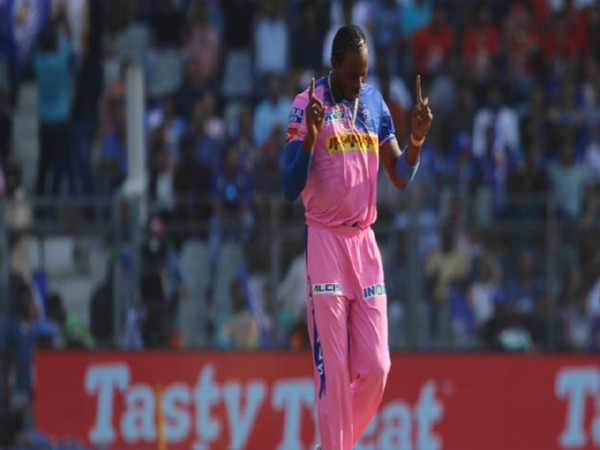Indian democracy is not a choice, it is way of life, says Jaishankar
Sep 15, 2021

New Delhi [India], September 15 : External Affairs Minister, S Jaishankar on Wednesday said that Indian democracy is not just a choice made in 1947, but a way of life.
Speaking on International Day of Democracy at the international webinar ''Independent India@75: Democratic Traditions'' conducted by Indian Council for Cultural Relations (ICCR), Jaishankar said, "It is appropriate that the International Day of Democracy is commemorated with particular enthusiasm in the world's largest and most energetic democracy. After all, for India, democracy was not just a choice we made in 1947, but a way of life well before that. Few societies can compare with the pluralism that has been our historical characteristic."
India has a long tradition of representative government. About 2,500 years ago, the Lichchhavi Republics had developed a consultative and democratic process of governance. Similarly, village panchayats with delegates gathering for a type of local grand assembly was an established custom in the 10th century Chola era, he said.
Talking about it, Jaishankar added, "Forms of ballots and of representative government have a long tradition in India. Indeed, variations of community-based exercises of rights and responsibilities and broad participation existed in many regions. They speak of our inherent attributes of transparency, diversity and pluralism."
He also laid stress on the election process of India. Every five years, a general election in India sets a new record for the world's largest such festival.
"Contemporary India's sense of pride in its electoral democracy is visible. We contrast the vigour and credibility of our systems with those who have rejected such exercises as much as those who practise them imperfectly. The consciousness of the power of an individual's vote even among socially and economically underprivileged voters - or perhaps more so among them - is a statement of how precious and hard-earned this privilege remains," said Jaishankar.
He also cautioned on the quality and morality of democracy and said that it lies beyond numbers. He said, "A faithful reflection of society in its elected representatives is what gives any democracy real strength. And that is what we see in India today."
He further emphasized the delivery of the services to the people by an efficient democratic nation.
Democracy is not just incomplete without delivery; this can even affect its credibility. Whether it is providing access to toilets, electricity and piped water, or in the near universalisation of bank accounts, democratic means are now realizing democratic ends. The equality of the vote must necessarily co-exist with the equity of human dignity," added Jaishankar.
Talking about the symbiosis of India's trajectory to influence the global journey, he said, " As India rises and its capacities and capabilities grow, it will naturally contribute more to the world. A civilizational state re-emerging on the world stage and draws on its heritage will obviously create its own imprint. In a truly democratic world, such an India will be more India rather than more West. Its developmental template and its embracing of wider responsibilities will draw even greater attention to the salience of its model."
"As a full-blooded member of the Global South, as a system that intersects so much with the West, and as a polity with a flavour that is uniquely its own, India's trajectory will surely influence the global journey. Remember that as India becomes ever more democratic, democracy will also become ever more Indian, both in its sensibilities and texture. The International Day of Democracy is the ideal occasion to discuss, cherish and celebrate that symbiosis," the External Affairs Minister said.
He thanked Dr Vinay Sahasrabuddhe, President ICCR for organising a webinar on ''Independent India@75: Democratic Traditions''.
In 2007 the United Nations General Assembly resolved to observe 15 September as the International Day of Democracy--with the purpose of promoting and upholding the principles of democracy.




















